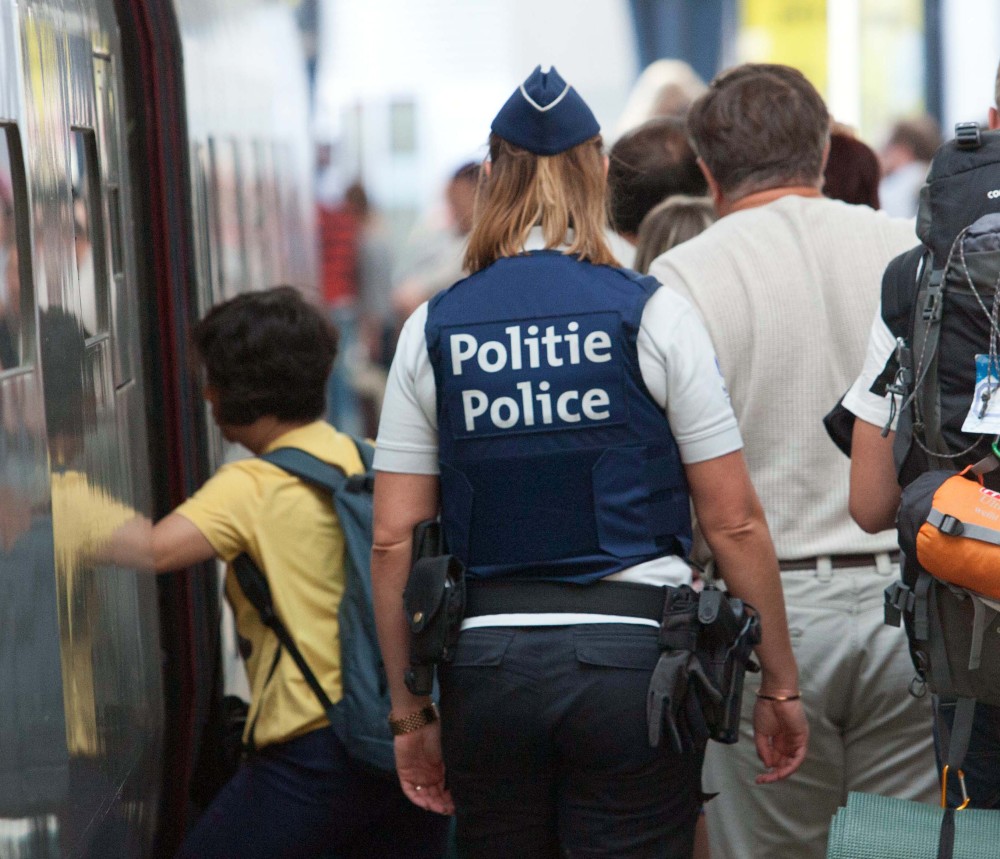PARIS — The gunman had an arsenal that he claims to have stumbled upon in a park near the train station. Like three other men accused of drawing up failed plans for attacks in France recently, the suspect denied any links to terrorism, telling his lawyer he was homeless and only wanted to rob a train “to eat.”
Instead, the assault rifle jammed, and he was tackled and bound with a necktie by three Americans and a Briton who were celebrated Monday with France’s highest honor. Now, with many lives potentially saved on the high-speed train by quick-thinking and courageous passengers, the limits of a continent’s worth of security were thrown into relief by a lone attacker during a less-sophisticated act of violence.
“I don’t think we can rely entirely on the police, the law enforcement services. They will do their best. We can put in place the best intelligence networks, but somebody is probably going to get through at some stage. And my vision of this is that as citizens, we need to be prepared to think about how to act,” said Chris Norman, the British businessman who helped tie up the suspect.
“We need to have it in our minds, because if I had never thought it before, then I probably would’ve just been sitting in a corner cowering,” Norman said.
With thousands of Europeans believed to be radicalized by propaganda from the Islamic State, and legions of security forces guarding the most visible targets, governments are increasingly worried about the possibility of carnage by individuals, with little planning, in a setting where there is minimal or no security.
If the attack fails, terrorist groups simply ignore it. If it succeeds, they claim responsibility for the work done by their “brother.”
“This creates a really interesting dilemma for law enforcement. You don’t have to be a mastermind or a sophisticated individual to kill a lot of people if you have weapons and they do not,” said William Braniff, director of the National Consortium for the Study of Terrorism and Responses to Terrorism. “You don’t have to be all that well-trained. There’s one threshold: You have to be able to load the weapon.”
That, apparently, was something the gunman identified as 26-year-old Moroccan Ayoub El-Khazzani was unable to do, according to Spencer Stone, the U.S. airman who subdued the attacker on a train from Amsterdam to Paris. Stone said he saw the man holding an assault rifle that “looked like it was jammed and it wasn’t working.”
The Islamic State has issued no comment on the failed attack. But on Sunday, a pro-Islamic State media group released a nine-minute video again calling on “Lone Lions” to kill Americans and Europeans.
Extremist groups have claimed responsibility for only 65 percent of attacks that can be attributed to them, according to data dating to 1998 from the National Consortium for the Study of Terrorism and Responses to Terrorism. Islamic State’s rate of responsibility claims is in line with that figure.
Copy the Story LinkSend questions/comments to the editors.



Success. Please wait for the page to reload. If the page does not reload within 5 seconds, please refresh the page.
Enter your email and password to access comments.
Hi, to comment on stories you must . This profile is in addition to your subscription and website login.
Already have a commenting profile? .
Invalid username/password.
Please check your email to confirm and complete your registration.
Only subscribers are eligible to post comments. Please subscribe or login first for digital access. Here’s why.
Use the form below to reset your password. When you've submitted your account email, we will send an email with a reset code.